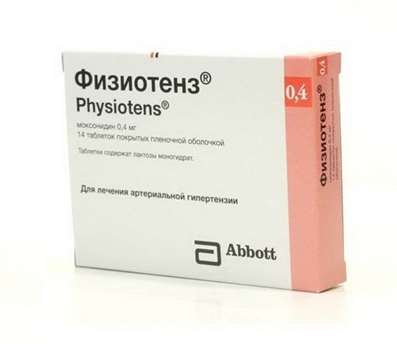Problems of modern parenthood
09 Dec 2016
Psychologist Dr. Doping tells about traditional forms of education, the first parent education programs and the reasons for the crisis of the bourgeois family model in the second half of the XX century.
Today in the scientific literature, there are two words, they are a parenting and parenthood. Parenting is the fact that due to the upbringing of a child is a parent in the role of caregiver. And when we speak of parenthood, we refer to the social role of parenting, experience as a parent of an adult his new parental role, the challenges it faces is a person who has a child in the broad society. Parenting limited child and parenthood - it is a society in which the adult lives.
This division is largely due to the fact that by the end of the XX century began to disappear in the traditional scheme of raising children. If we go back even a century ago - we assume the end of the XIX century, Russian or western village - it is usually in the ceiling was screwed a hook on which hung the cradle as soon as a new member of the family, and all that was done by people, living in the house, around the child - it was not so much the "head" knowledge (they did not act because they knew that so it is necessary to act) as corporal, effective knowledge. The baby cries - give it the breast or horn, as it was called. The child does not cry - and thank God, it can not ignore. He began to crawl - excellent, it crawled out of the house - do not worry. It is customary, traditional knowledge was due to the fact that most people grew up on a large family, that is, the family had a lot of uneven members and a young woman who appeared the first-born, already had experience raising their more younger siblings, nieces and so further.
This stable, traditional culture, which is transmitted even from generation to generation, and from the older to the younger, began to break up, when the intensive migration to the cities (in large quantities is, of course, the end of XIX - early XX century), and the general family narrowed actually to the nuclear family, mother and child. This mother with a child, lost contact with his wider family, do not get to experience the so-called children-education (education of the younger, but not their children) are likely to become to make a lot of mistakes. And at the turn of XIX-XX centuries there are the first parent education programs that focus on the message of basic skills first nursing, and later education of children: it is necessary sometimes to wash your hands, you have to keep the child clean, that is, it is basically, of course, were the details and skills that are needed for parents to reduce child mortality. Home life of these people migrated from the countryside to the city, was actually very bad arranged, so this knowledge, of course, required.
By mid-century, according to the program that offers training for parents, they began to need some more information about how to raise children. At that time, it was the science pedagogy, and there was the so-called periodization of mental development, and parents are about to provide that a child should be able to do in a year, which is three years than he would do well to deal with, for example, in pre-school, as we now say , age, ie before entering school, and so on. The value of this new time pedological, and now psychological knowledge was a bit exaggerated (this is my personal opinion), and parents are to a certain extent even some hostages to this knowledge, because God forbid your child does not do what his peers and is written in books. God forbid you think your child's play does not match the descriptions that you too have found from experts. knowledge of pressure - it's kind of a topic transition to an information society.
The Second World War and after the restoration - it's a baby boom in the West, the unconditional value of the family and the child's absolute value. Very well-known American psychologist David Elkind writes that the family was child-centric: the parents were willing, for example, does not dissolve the marriage for the sake of the child, the parents were willing to give up a career, women are generally quite often refused to career for the sake of the child. I enjoy following the mind of the Elkind: he says that does not matter, as in reality looked like the family, the family were very different, but the most important thing is that, for example, a divorced mother who is raising a daughter, wanted to complete the bourgeois type of family for her, it is desirable two children of different sexes, and such a touching picture of the evening family meal. This is child-centric family.
In the second half of the XX century - the crisis of the bourgeois model and family, and society. Then the year 1968 - it is the student riots, and begins the era of postmodern era of the collapse, the era of eclecticism, the era of the plurality of models, the era of individualization. Personalisation means that I'm not willing to sacrifice their career, success, a view, joy, momentary pleasure for the sake of something else, for the sake of the values of society, society requests. And, according to Elkind, a period when the family became adult-centric: parents are willing to move and to move their children to another city, even though the children is uncomfortable, parents easily get divorced, because both are already economically to raise children, they are very time consuming devote his career and, Elkind, if a beautiful picture of the first half of the XX century was a joint family meal, it is now a way of childhood and family has become an endless journey of one parent with the child for life. If you remember the American film "Curly Sue", then there is just the story of the Pope with the girl, who travel. And it is very characteristic that they are homeless because homelessness is becoming more paint to the description of such a family.
Today, the value of knowledge, the value of family, which is a bit contrary to adulr-centric topic shifted to a large extent, I would say, intelligent solutions, intelligent choices. On the one hand, parents who are easily parted, and the child is left with one of them or moves from family to family; On the other hand, parents are very carefully chosen model of education: they read different books, they know what Alpha-parenthood, they know what attachment theory, they know that Freud wrote about a childhood trauma. And a new problem arises in connection with which, apparently, came the word of parenthood. There is a new problem to the amount of information loss. In so many diverse offerings, probably partly to blame for the market, because it is also a commercial component. The modern parent is faced with a difficult choice: he must decide what kind of diapers to buy a child, because that is offered very much, he must decide what to feed the child, but, most importantly, it should - and society imposes on him that ought - to decide how it will bring up your child, in which model it will be to educate him. Today these models appeared a lot, and they somehow relate to the classical theory, attachment theory basically, but the classical theory of child development is translated into system requirements as to what to do with him.
Then there is this curious thing: if we talk in general, statistically, it's probably not a lot of parents affected by such an abundance of knowledge (much wisdom - much grief), but an educated, relatively well-secured, interested in the future of their children parenthood appeared before these endless choice of topics, and most importantly, no matter what they choose, they do not know whether they are right or not. And here is the incredibly complex problem, which we must also keep in mind: "Today I feed him the right food for over 20 years, he did not have, for example, obesity." No scientific data on this issue, unfortunately, no. We have nothing in this regard can not say firmly, but seems to be an expert of the position of the mouth of smart people and clever theories have to do so. However, we have about it is no exact data. And so the parent is faced with the unbearable choice: he does not know if he was doing the right thing, because the new theory appear every day, and he is in a situation of severe psychological stress. To cope with stress – buy Afobazol, Phenibut, Selank and Phenazepam.
For me, as a psychologist the most unpleasant in this situation, that wonderful young mothers simply lose common sense: they did not begin to talk about their own child and not about their own experiences and about how "necessary". And this is a very strange situation, because it seems to be the end of the XX century - it is freedom, individuality, value itself; On the other hand, the advanced part of the youth is under serious oppression. And so there was a theme of self-efficacy, and even special training in self-efficacy. Self-efficacy - a person's ability to trust himself in his actions. The most valuable part of my life associated with the child, the most difficult to be self-efficacy, it most difficult to believe in their own strength. The outbreak of a wave in the West (I am glad that it is now came up to us) - is a topic of discussion with the parents the opportunity to act at their own risk, to take responsibility, not afraid to try, because many do not you advise what to feed child, must still look like it useful or do not like broccoli. Once your child is an indication, I would say - in fact, this is the slogan of the training and assistance programs for parents who today are beginning to be offered on the market.

 Cart
Cart





